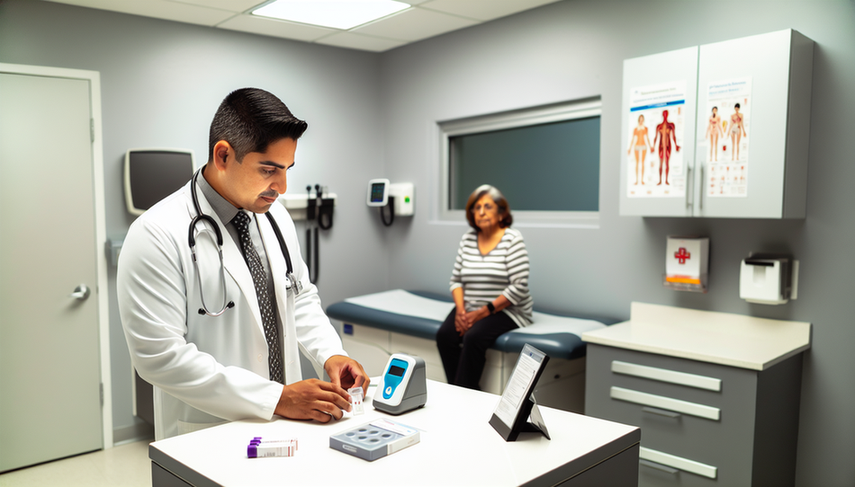Rapid Tests and Point-of-Care Laboratories: Immediate Diagnostics for Infectious Diseases

In modern medicine, the ability to perform immediate diagnostics is crucial for the effective management of infectious diseases. Rapid tests and point-of-care laboratories (POC) have revolutionized our approach to these diseases, enabling faster detection and treatment, which is essential for controlling the spread of infections and improving clinical outcomes.
Advancements in Rapid Tests and Point-of-Care Laboratories
Rapid tests have significantly evolved, integrating advanced technologies such as CRISPR-Cas systems, which offer ultrasensitive detection of pathogens. Technologies like SHERLOCK and DETECTR utilize unique properties of CRISPR-Cas effectors to amplify nucleic acid binding events, allowing for precise and rapid diagnostics in deployable field formats. These advancements are particularly useful in resource-limited areas where laboratory infrastructure is scarce.
In the context of infectious diseases such as tuberculosis, point-of-care tests facilitate early detection and immediate treatment, reducing disease transmission. Furthermore, the integration of microfluidic technologies has enhanced the development of new POC tests, enabling faster and more accurate diagnostics.
In the realm of sexually transmitted infections, single-use PCR devices have proven highly effective for detecting pathogens such as Neisseria gonorrhoeae and Chlamydia trachomatis, offering exceptional sensitivity and specificity. These devices represent a significant advancement in the development of rapid diagnostics for sexually transmitted infections and other infectious diseases.
Conclusions
Rapid tests and point-of-care laboratories are essential tools in the fight against infectious diseases. Their ability to provide immediate diagnostics significantly enhances the management of these diseases, especially in resource-limited settings. As technology continues to advance, it is crucial that we integrate these innovations into our clinical practice to improve patient outcomes and control the spread of infections.
References
- [1] SHERLOCK and DETECTR: CRISPR-Cas Systems as Potential Rapid Diagnostic Tools for Emerging Infectious Diseases
- [2] Point-of-care diagnostic tests for tuberculosis disease
- [3] Performance of a single-use, rapid, point-of-care PCR device for the detection of Neisseria gonorrhoeae, Chlamydia trachomatis, and Trichomonas vaginalis: a cross-sectional study
Created 24/1/2025
